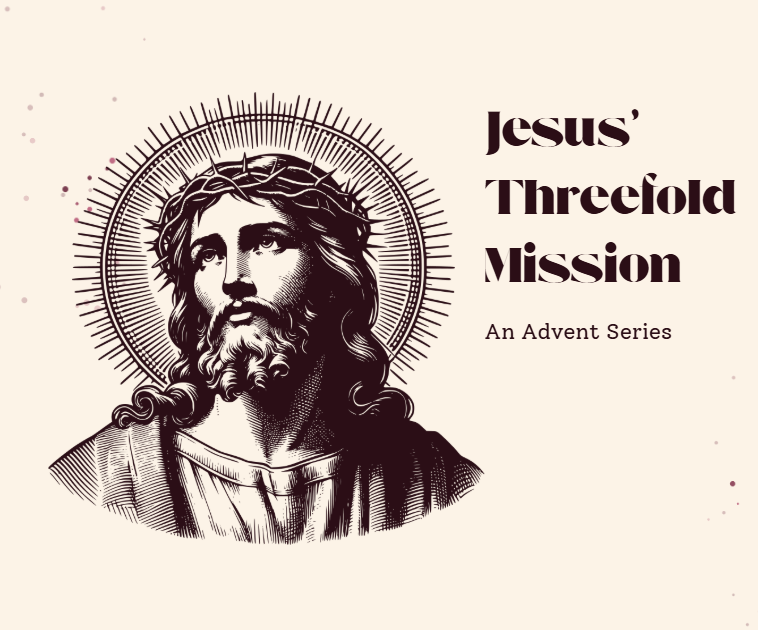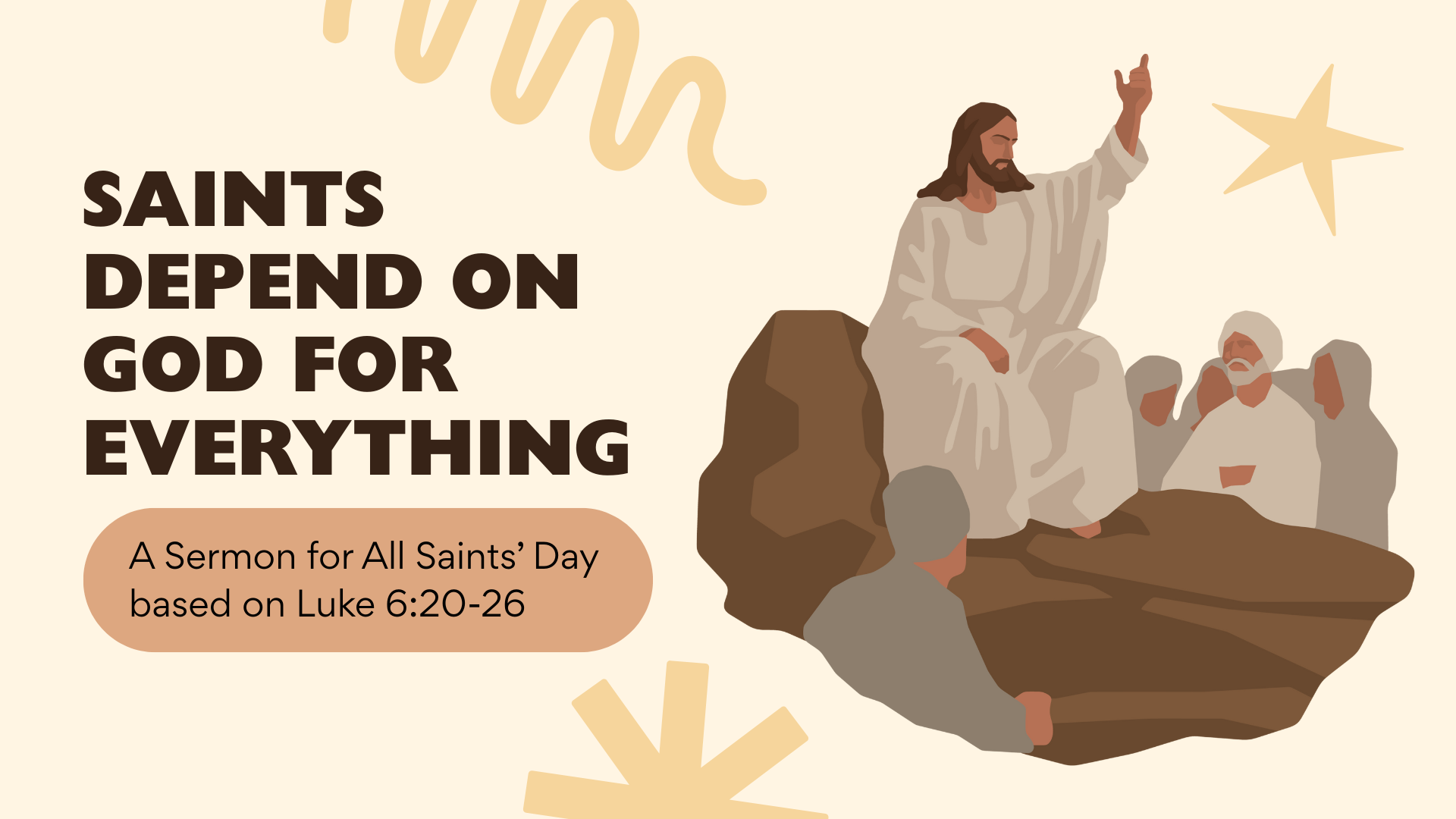"...For the Bible Tells Me So" - A Discussion of how God Reveals the Truth

This devotion accompanies themes that have been studied in the previous week’s Sunday morning Bible class. Over the next few weeks, join us at 9am on Sundays at Trinity for the following discussions!
After commanding her ten-year-old to pick up the dirty laundry on his bedroom floor for the seventh time, mom is getting tired of repeating herself. And when her son protests for the seventh time, “Why do I have to do this right now?” she is out of patience. She resorts to a classic play straight from the book millions of other parents and says, “Because I said so, that’s why.”
However, her son adeptly launches a counter-attack that she didn’t see coming. “But mother,” he says, “Your logic is flawed. That I should obey you because you say so is a classic example of the circular fallacy.” “The what?” the mother asks, growing evermore frustrated. “Your argument is that I should obey your authority because you have authority. Logically, this doesn’t make sense!” If this were the conversation we were met with, we’d join the mother in shouting, “Just do it already!”
The circular fallacy is familiar to most Christians, because it’s exactly the fallacy we’re accused of committing. Over the last blog posts, we learned the horrible truth that we are by nature sinful (Psalm 51:3-5), but that God has laid on Christ the iniquity of us all (Isaiah 53:6), crucifying it on the cross and therefore setting us free from sin (Romans 6:6-7). We learned how we are connected to this glorious forgiveness by God-given faith (Ephesians 2:8-9). This newly-established relationship with God expresses itself in our thankful actions and our desire to serve God and neighbor (Ephesians 5:1-2, 8-10).
“And then we lived happily ever after,” right? We’re saved by Christ alone. We’re saved through Faith alone. We aren’t saved by our good works, but we live them out as expressions of thankfulness to him. Easy peasy!
As you have undoubtedly learned, these matters may be so simple that a child can understand them, but living them out is the hard part (see Paul’s description of his and our struggle to live as we ought in Romans 7:7-25, and Galatians 5:16-26). How do we navigate the struggle to live as well as we should, know Christ as well as we should, and be God’s people as we know we should?
The answer is simple. The Word of God serves as our constant companion to ease our doubts, calm our troubled conscience, and give us direction as we struggle to live as people of God and leave his mark on the world.
How can it do all that at once? Well, because it’s the Word of God, of course! God inspired (“breathed into”) human authors his enduring Word to reveal to us the truth of sin and grace (2 Timothy 3:15-16, 2 Peter 1:21).
How do we know he did? Why, he tells us, of course (see passages cited above)!
Now, isn’t that “the circular fallacy”? Isn’t it flawed logic to say that I should trust what the Bible says because the Bible says to trust what it says? Maybe it doesn’t seem like the most logically airtight argument in the world, but that doesn’t make it false by any stretch. Allow me to explain:
Almost all systems of belief center on one truth: we should be good. You can believe in one god or many gods. You can believe in no gods at all, or consider it an open question. No matter what, most approaches to life boil down to that fact: we should behave well.
Have you ever wondered why most religions (and even forms of atheism) basically boil down to that same point? The Bible explains that this is because mankind can easily observe and conclude that some powerful person or force created this world (Psalm 19:1-4, Romans 1:20). Haven’t you also noticed that basically everyone has some idea of right and wrong? Before opening a Bible or any religious text, each person has a conscience by which they try to live rightly (Romans 2:14-15).
The problem is, if that’s all you’ve got, there are still a ton of unanswered questions and unsolved problems. Who gets to define what “right and wrong” actually are? What about when I do everything “right” but still feel bad about myself? Where are we going when we die? If there is a god, who is he/she? We cannot answer these questions if all we’ve got is our own senses and intellect.
This is about as far as most faith systems get us. Most. The Apostle Paul affirms in 1 Corinthians 2:9-10 that nobody could have cooked up who God actually is and what he actually does for us. John 1:18 affirms that salvation from sin by God’s grace through faith alone had to be revealed to us. This needed to be revealed to us.
We should trust what God says about us, the world, and our lives, because these words come from God. Does that challenge our human logic? Sure, why shouldn’t it? Jesus’ life-saving obedience of God’s will for you, death for you, resurrection for you, and current all-encompassing reign for you is a lot more than I could have ever come up with for you. And it’s a lot better. That’s what all other faith systems other than the truth of the Bible lack: grace, unconditional love.
Since this truth is revealed in Scripture, I better hang onto that Scripture! Since this divine, transcendent, out-of-this-world reality of full and free salvation comes from God’s Word, I want to stay in God’s Word! My whole life I want to be singing that song many learn to sing in their childhood: “Jesus loves me. This I know, for the Bible tells me so.”
The Bible, then, becomes our constant companion. God speaks through it to soothe your troubled conscience with the Gospel, pointing always to his grace through Jesus. God grows your faith by deepening your understanding of who he is and how he works. He gives you guidance as you seek to turn your thankfulness to him into action.
You’re reading this blog on the website or newsletter from a Lutheran church, so I hope you don’t mind a little more talk about Luther. Martin Luther recognized and taught that there are two main teachings in the Bible: the Law and the Gospel. When I read the Bible and discover that I’m not as well-behaved as I thought I was, that’s the Law at work. The Law reveals God’s will for his creation. When I see what God really wants from me, I am compelled to give up the charade of being “good enough for God.” That’s a good thing, even if it feels awful. It is good because it prepares me to hear the gospel, which is Scripture’s proclamation that God has saved me purely because he wants to, because he loves without conditions, and he promises to always love me and forgive me for Christ’s sake. These two teachings work together to keep us mindful of who God really is, how he really works, who we really are in Christ. “Jesus loves me. This I know, for the Bible tells me so.” Once I’m comforted by the gospel, and looking for ways to say “thank you” to God, the Law returns, not to slay me all over again, but as a useful guide to help me find my direction as God’s dear child.
I might need to come up with better ways to explain why obeying my commands is a good idea than saying, “Because I say so,” but do we really need any other explanation for how we can be sure God loves us than “Because he says so”? And knowing that this is the God who wants what is best for me, whose will is always good (Psalm 106:1), who is righteous in all his ways and faithful in all he does (Psalm 145:17), do I really need any more justification for following what he has to say than, “Because he says so”?
I realize that this may bring up a whole host of other questions. I should hope that it does! I likewise hope that you’ll join us in our discussions of these things in our 9am Bible Class every Sunday Morning. You are welcome to reach out to us at any time. We would love to continue the conversation with you!
God bless you through the revelation of his love that he gives in his Word!
Pastor Mike Cherney







